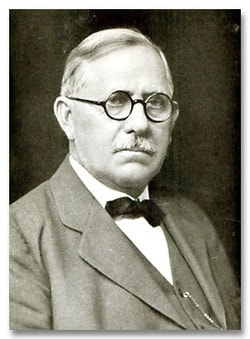
“But cursed be the deceiver Who has in his flock a male, And takes a vow, But sacrifices to the Lord what is blemished– For I am a great King, says the LORD of hosts, and My name is to be feared among the nations." Malachi 1:14 (NKJV)
God said that the person who has a good animal they could give to Him but chooses to give animals without value is cursed. That is pretty serious. Why does God get so upset about this? The previous verses give us the answer.
“A son honors his father, And a servant his master. If then I am the Father, Where isMy honor? And if I am a Master, Where is My reverence? Says the LORD of hosts To you priests who despise My name. Yet you say, ‘In what way have we despised Your name?’ “You offer defiled food on My altar. But say, ‘In what way have we defiled You?’ By saying, ‘The table of the LORD is contemptible.’ Malachi 1:6-7 (NKJV)
God says that giving Him sacrifices that have no value shows that they believe God doesn’t deserve any respect and that they despise His name. Here is the deal, they knew what God expected from us in this area. They knew that God expected the first and best from their flocks. When they chose not to give God what He expected, they were saying to God that they didn’t respect Him enough to do what He expected them to do. They weren’t giving God the basic respect He deserved as their Father and Lord. But wait, there’s more.
And when you offer the blind as a sacrifice, Is it not evil? And when you offer the lame and sick, Is it not evil? Offer it then to your governor! Would he be pleased with you? Would he accept you favorably?” Says the LORD of hosts. Malachi 1:8 (NKJV)
God brings up two interesting points here. First He said it was evil for them to give Him their rejects and their leftovers. What we’ve got to recognize from this, and keep in our minds, is that God didn’t say, “Oh well, at least their giving me something. I’ll take it.” No. God says that giving Him their junk is an evil action. Wow. Secondly, He says that the sacrifices they give to their human authorities are better than the ones they make to Him. The idea is if they wouldn’t expect humans in authority over them to accept their junk, why would they think their great God would accept their junk.
“Who is there even among you who would shut the doors, So that you would not kindle fire on My altar in vain? I have no pleasure in you,” Says the LORD of hosts, “Nor will I accept an offering from your hands. Malachi 1:10 (NKJV)
God gives us three important, and challenging truths here.
1) God would rather they shut the doors as offer Him their junk.
God would rather they offer Him NO sacrifices as offer Him their leftovers. In God’s economy, no devotion is better than halfhearted devotion. As I studied this I wondered if there was a connection to Revelation 3:16 where Jesus said that the lukewarm followers of Laodecia were going to be vomited out of His mouth. It seems to me that it would be, as their sacrifices flowed out of a less than wholehearted devotion to God. And just as the devotion from lukewarm professed believers wouldn’t’ be accepted, neither would half hearted sacrifices.
2) God took no pleasure from their leftover sacrifices.
Basically their leftover animals as sacrifices didn’t even remotely please God. As I studied this I wondered if there was a possible connection to Hebrews 11:6 that says without faith it is impossible to please God. I would say that seems likely as their leftover sacrifices surely showed a lack of faith in God to provide for them.
3) God would not accept their leftover sacrifices.
This is huge. God would not accept these sacrifices. You could say that they were wasting their time by offering God less than their best. God completely refused to accept them.
For from the rising of the sun, even to its going down, My name shall be great among the Gentiles; In every place incense shall be offered to My name, And a pure offering; For My name shall be great among the nations,” Says the LORD of hosts. “But you profane it, In that you say, ‘The table of the LORD is defiled; And its fruit, its food, iscontemptible.’ You also say, ‘Oh, what a weariness!’ And you sneer at it,” Says the LORD of hosts. “And you bring the stolen, the lame, and the sick; Thus you bring an offering! Should I accept this from your hand?” Says the LORD. Malachi 1:11-13 (NKJV)
Giving their leftovers as sacrifices to God dishonored God. The value of the sacrifices they made to God was a testimony to those around them. God’s name was to be made great among the gentiles. One of the ways that God’s name would be shown to be great is by the Jewish people offering God their best. Every time they offered God less than their best it was a testimony that God really wasn’t all that great. In fact, what they did by offering God their leftovers was so bad that it actually profaned God’s name. Their profaning of God’s name continued in the way they acted toward God’s expectations of them. They acted as though it wearied them. What a burden it was to serve God and offering Him our best. Seems to be part of their attitude. The other part is that they sneered at it. To sneer at it is a form of distain. “Pfft, I’m not giving God my best. I’ll give Him what I give Him. He can take it or leave it.” That sorta seems to be the idea here.
So what about it? Are you giving God our best or what’s left? It is critically important that you make this gut check question very personal to you. The reason is that your best or what’s left isn’t determined by comparison. God won’t compare what you’ve given to someone else and then decide if it’s best or what’s left. This is both encouraging and challenging.
It’s encouraging because there are always people who know more than we do, have more money to give than we do, can sing better than we can, lead more people to Jesus than we will, and just generally seem to have more to offer to God than we do. But God won’t look at us and ask why we didn’t know, give, serve, sing, or do as much as they did or do it as good as they did. He’ll just look at us to see if we gave Him our best or if we gave Him what was left.
This is challenging because just as we can always find someone who does more or better, we can also find someone who does less and worse, as we want to define it. But God won’t look at us and say, “Well, at least you did more/better than them.” God will look at us to see if we gave Him our best or what was left. So without comparing yourself to anyone else answer this gut check question. Do you give God your best or do you give God what’s left?
This post was written by Rev Ross. You can find his blog here: stacyjross.wordpress.com/









 RSS Feed
RSS Feed